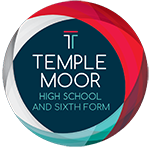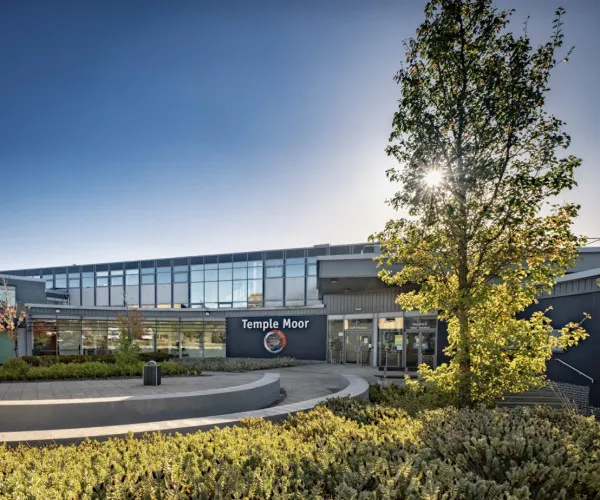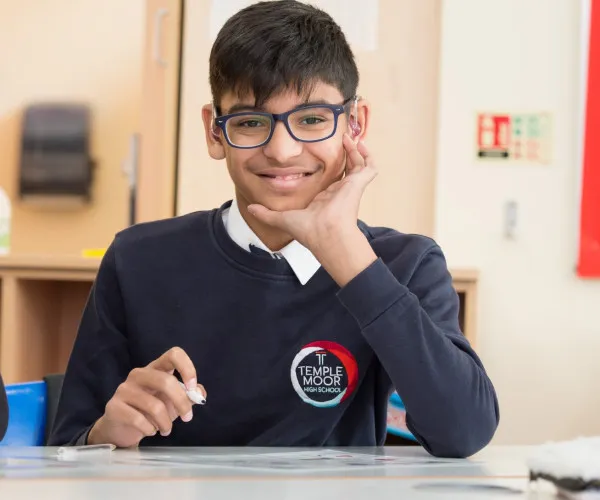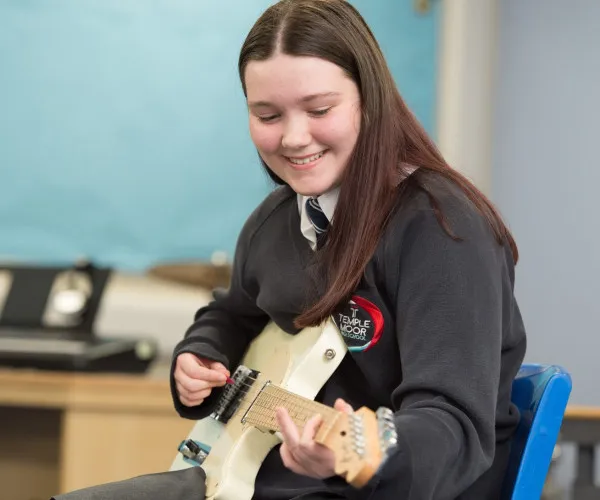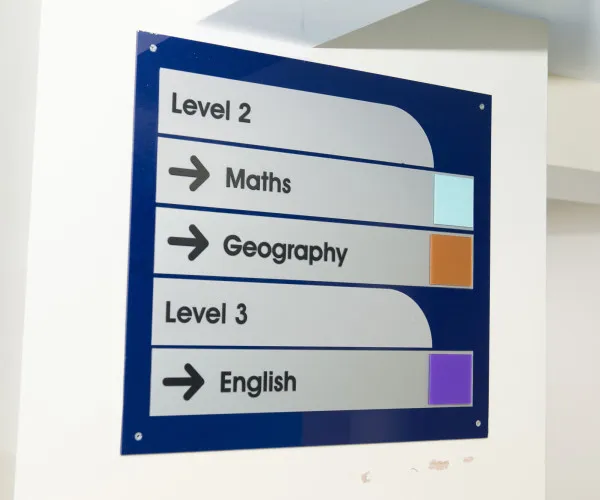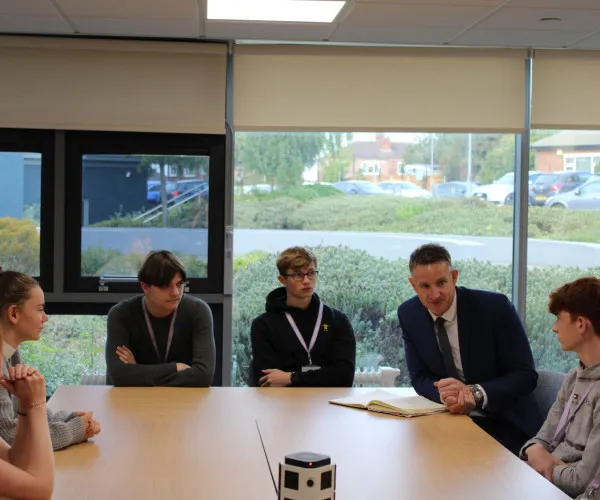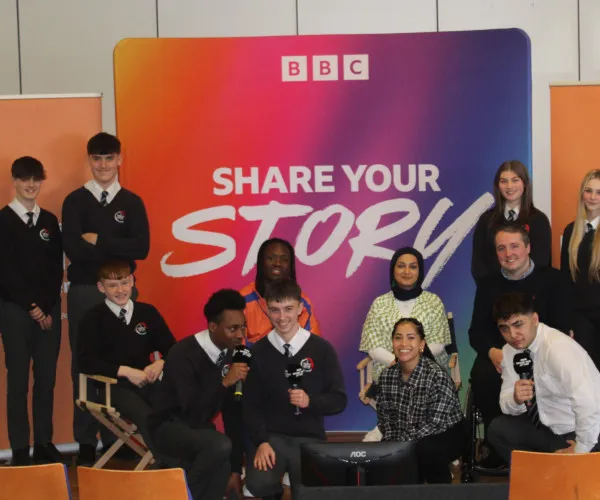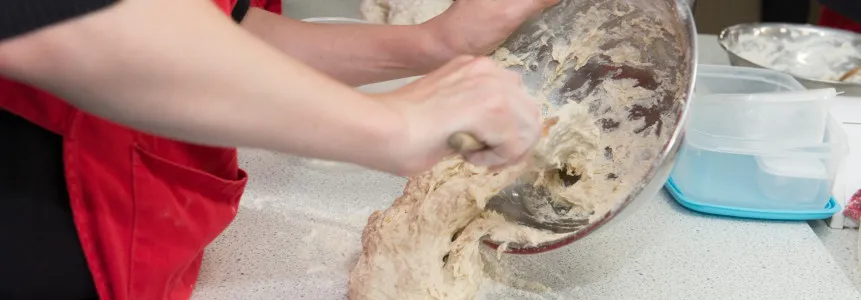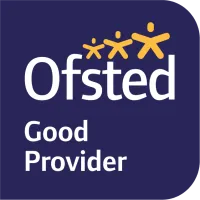- Curriculum
- Assessment
- Form Time
- British Values & Preventing Radicalisation
- Curriculum Subjects
- Art Curriculum
- Business Studies Curriculum
- Communication Curriculum
- Criminology Curriculum
- Design & Technology Curriculum
- English Curriculum
- Geography Curriculum
- Graphic Design Curriculum
- History Curriculum
- ICT Curriculum
- Law Curriculum
- Mathematics Curriculum
- Modern Foreign Languages Curriculum
- Performing Arts Curriculum
- Personal & Character Development
- Photography Curriculum
- Physical Education Curriculum
- Psychology Curriculum
- Read to Succeed
- Religious Education Curriculum
- Science Curriculum
- Sociology Curriculum
- Learning Qualities & Values
- The Options Process
- Supported Study and Revision
Design & Technology Curriculum
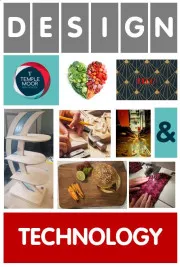 Curriculum aim
Curriculum aim
We believe Design and Technology is an inspiring, rigorous and practical subject. Students will use creativity and imagination to design and make products that solve real and relevant problems within a variety of contexts, considering their own and others’ needs, wants and values. Students will acquire a broad range of subject knowledge and draw on disciplines such as mathematics, science, engineering, computing and art. Students also learn how to take risks, becoming resourceful, innovative, enterprising and capable citizens. Through the evaluation of past and present design and technology, they develop a critical understanding of its impact on daily life and the wider world. High-quality design and technology education makes an essential contribution to the creativity, culture, wealth and well-being of the nation.
Details about curriculum structure
Students begin Year 7 Design by working through a range of projects which focus on delivering key competencies and knowledge, for them to access a large depth and breadth of learning. Students rotate through a carousel of disciplines twice in Year 7, 8 and 9, building knowledge and skills in each rotation.
After choosing options at the end of Year 9, students can focus their studies in GCSE Design Technology, Food and Textiles in Years 10-11, through exciting, real-life projects which deepen their knowledge of the world around us whilst developing products that help various users.
Students can also opt to begin BTEC Construction in Year 9 as part of their first chosen option, which builds upon the Key Stage 3 curriculum and is studied over 3 years.
What will students study?
Key Stage 3
Year 7
Students will study 3 different subjects on a carousel: Product Design, Textiles and Food. The projects will focus on discovering each area and developing a passion for the subject.
Product Design
Students will create an ergonomic torch, discovering about timber as a material and being introduced to the design process.
Food
Students will explore healthy eating, how foods are cooked, and how to keep themselves safe when preparing and cooking foods. Students will learn a range of basic food preparation techniques and life skills through practical learning, making food products including couscous salad, pizza, and muffins.
Textiles
Students will create arty bunting for a client (Leeds Art Gallery) by researching inspiration and learning key decorative techniques. The students will learn a range of design movements throughout history as well as the design process and understand how to be a successful designer.
Year 8
Students will begin to build a deeper knowledge and develop key competencies across the carousel.
Product Design
Students will create an acoustic speaker/phone stand. They will focus on working with manmade boards and polymers and using CAD CAM for the first time. It will also be designed for the company Alessi so students will discover working for a client.
Food
Students will build on their knowledge from Year 7, learning about micronutrients and macronutrients and their role within their diet. They will begin to explore specific dietary needs and learn how to cater for a range of different people. Students will continue to develop their planning and food preparation competencies, making food products including stir fry, Spanish tortilla, veggie pasta and chilli con carne.
Textiles
Students will use the skills learnt in year 7 to develop their knowledge and skills when designing and making a textiles product. They will develop their creative and imaginative skills to design and create a tote bag linking to Tropical World in Leeds. Students will develop their abilities to work like a ‘real life’ designer, by designing for a client and meeting a specification.
Year 9
Students will continue to rotate in Year 9 to give them the maximum depth and breadth across the curriculum. This will help aid their choices going into KS4.
Product Design
Students will focus on using famous design movement of the past as inspiration to make a modern retro clock. Students will use a range of quality control techniques to produce a quality finished outcome.
Food
Students will continue to develop their knowledge and advanced competencies in preparation for them to move forward to Key Stage 4 study. In Year 9, students will explore the hospitality and catering industry. They will develop competencies required to plan, prepare and cook foods. Students will learn about different types of food poisoning, safe food storage, high risk foods and cross contamination. Students will prepare food products including , Spaghetti Bolognese, Burgers, Chicken Butchering, Curry and Cheesecake.
Textiles
Students will use the skills learnt Year 7 and 8 to develop their existing knowledge and skills when designing and making a textiles product. Students will also be introduced to mark making, printing & CAD/CAM. Students will be pairing architecture with textiles techniques to create a t-shirt to be ‘sold at’ City of Culture 23. They will develop their creative and imaginative skills to create a unique outcome and meet the design brief.
Key Stage 4
Textiles
Students undertake the BTEC Art/ Design (Textiles) qualification. Students are given the opportunity to research, design and make products, which meet design briefs. Students learn to research effectively as well as build upon Textiles skills to create good quality outcomes during multiple projects.
Students use inspiration from artists and designers past and present, they also have the opportunity to collect their own research including photography all of this enables them to create their own ideas and outcomes, learning from real-life practitioners.
Construction
Students will begin by building new skills and expanding upon skills from KS3 Design and Construction. In term 2, they will apply these practical skills to the carpentry unit, getting a real taste of what it is like to be a carpenter making a frame from pine utilising multiple different wood joints. After this, students will complete the architecture unit which will continue into year 11, they will follow the process of a real design project from meeting the client through research to producing multiple potential designs being able to justify their suitability. Alongside their practical and written coursework, they will also begin discovering some of the underpinning theories of how buildings are constructed from foundations to roofs. They will complete their official exam at the end of year 11.
Design Technology
The Eduqas GCSE in Design and Technology offers a unique opportunity in the curriculum for learners to identify and solve real problems by designing and making products or systems. Entering Year 10 students will begin to explore more challenging briefs and more complex manufacturing methods. They will begin to independently pass-through iterative design process, whilst also building upon key knowledge and competencies. At the end of Year 10, they will begin their non-examined assessment (NEA) and begin researching for their Year 11 project.
Hospitality and Catering
The Eduqas award builds upon students’ food preparation skills and experiences from KS3. In Year 10, students will develop a greater understanding of nutrition and the working characteristics of foods. They will also learn about food from around the world, investigating British and international food traditions. Students will master culinary skills and appreciate the science behind food and cooking, while learning about food presentation of their food products.
BTEC Construction and the built environment
Students will begin working on their carpentry unit at the start of year 10 getting a real-life taste of what it is like to be a carpenter making a model window our of pine. This along with additional coursework will make up the first 25 percent of their overall grade. They will also begin discovering some of the underpinning theories of how low-rise dwellings are constructed. They will complete their official exam at the end of year 10.
Year 11
Design Technology
Students complete a coursework section over 35 hours. They will design and create their own project to solve a real-world problem. This can be through a range of materials and techniques.
Hospitality and Catering
Students will continue to master a variety of technical competencies and become proficient in the kitchen. They will also develop an in-depth knowledge of food science, food safety, food choice, nutrition, and health in preparation to take their examination. In Year 11, students complete two non-exam assessments worth 50% of the qualification.
Key Stage 5
Year 12
Product Design
Students will focus on developing their skills and knowledge to begin their NEA (coursework) at the end of the year. Their first project will be based around the creation of an architecture inspired lamp. They will be introduced to all the process and materials they could work with in the design department, from 3D printing to concrete moulding. They will then complete a small NEA practise project ready to start their NEA at the end of Year 12.
Textiles
Students conduct a personal study of work where they choose their own starting point to investigate. Students undertake in-depth primary and secondary research and create studies and responses to order to demonstrate their findings. Students are encouraged to seek knowledge from past and present practitioners to help build their own skills, in order to produce successful final composition pieces. During this process, students produce a sketchbook of research, findings, samples, and designs like a designer in the industry would use. Students will also creating an extended piece of formal writing analysing a chosen topic, which will help develop their knowledge of industrial practitioners.
Year 13
Product Design
With the iterative design process fully embedded, it allows students to identify real world design opportunities. In a similar format to the GCSE, students will create a coursework piece based on a real world problem they have chosen and design something to solve this. Pupils will be given freedom to write challenging design briefs, using them to create quality and demanding products. They will learn about design and manufacture processes in industry in order to prepare them for design based university courses or careers. Students will also have the opportunity to become proficient in industry standard equipment, including CAD/CAM, to develop designs from concepts to realisation.
Textiles
Students complete an examination unit of work presented by the exam board. Students select their own brief to investigate and undertake in-depth primary and secondary research, cultural studies and responses to order to demonstrate their findings. Students are encouraged to seek knowledge from past and present practitioners to help build their own skills in order to produce successful final composition pieces with the exam timeframe. This can vary from creating a fashion or interior or textiles art piece.
Qualifications we offer at KS4 and KS5
KS4
KS5
Enrichment and extracurricular opportunities in the subject
Young Engineers Club
Young Engineers brings together Technology, Science and Maths in order to give students opportunities to embark on design and making projects beyond the classroom, with a view to producing problem solvers and critical thinkers for the future.
Stitch-Up Club
Small design and make projects are planned to enthuse and develop students’ understanding and skill when using textiles techniques. A range of trips and visits are planned for the future. Trips will vary from visiting IKEA to generate designs for the company, to visiting a manufacturing site to see the manufacturing process. The aim is to give the students a broad range of experiences within Design Technology.
Where could this subject ultimately take you?
Design Technology prepares students to participate in tomorrow’s rapidly changing world. Students learn to think creatively and solve problems as individuals and as part of a team. The way we teach the students helps them respond to needs by developing a range of design ideas, using digital design tools, manufacturing products and systems, and building up a range of applied technical competencies. The students we teach will go on to solve the world’s problems and we need them now more than ever. In terms of career, there are varied avenues including: food nutritionist, architect, carpenter, site manager, fashion designer and engineer.
Links to other sites which support study in our subject
Contact details to find out more about our curriculum
Programme Leaders Technology
Miss R Carter & Mr C Longfellow:
Food
Miss R Cowlard, Technology Teacher
Textiles
Mrs L Harris and Miss Carter, Technology Teachers
- Curriculum
- Assessment
- Form Time
- British Values & Preventing Radicalisation
- Curriculum Subjects
- Art Curriculum
- Business Studies Curriculum
- Communication Curriculum
- Criminology Curriculum
- Design & Technology Curriculum
- English Curriculum
- Geography Curriculum
- Graphic Design Curriculum
- History Curriculum
- ICT Curriculum
- Law Curriculum
- Mathematics Curriculum
- Modern Foreign Languages Curriculum
- Performing Arts Curriculum
- Personal & Character Development
- Photography Curriculum
- Physical Education Curriculum
- Psychology Curriculum
- Read to Succeed
- Religious Education Curriculum
- Science Curriculum
- Sociology Curriculum
- Learning Qualities & Values
- The Options Process
- Supported Study and Revision
